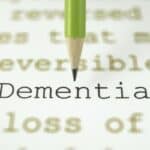
Frequently Asked Questions About Alzheimer’s Disease & Related Dementias
Learning that a loved one has Alzheimer’s is emotional and overwhelming. Our list of the “most asked questions” pulls information from leading research and education organizations, such as the Boston University Alzheimer’s Disease Center, The Mayo Clinic and the Alzheimer’s Association, to provide some quick answers and insight for you as you start your research.
Is Alzheimer's disease a normal part of aging?
Serious mental decline is not a normal part of aging.
As people age, it’s normal to have occasional memory problems, such as forgetting the name of a person you recently met. Alzheimer’s is more than occasional memory loss. It’s a disease that causes brain cells to malfunction and ultimately die. When this happens, an individual may forget the name of a longtime friend or how to return to a home they’ve lived in for decades.
The Alzheimer’s Association calls the widespread but incorrect belief that mental decline is a normal part of aging “Myth #1” (Click here for more myth busters)
Also checking out the Association’s web site for information to help you identify when memory issues should be a cause for concern. You should also contact your physician.
What are the common symptoms of Alzheimer's disease?
The Alzheimer’s Association’s 10 early signs:
- Memory loss that disrupts daily life
- Challenges in planning or solving problems
- Difficulty completing familiar tasks at home, at work or at leisure
- Confusion with time or place
- Trouble understanding visual images and spatial relationships
- New problems with words in speaking or writing
- Misplacing things and losing the ability to retrace steps
- Decreased or poor judgment
- Withdrawal from work or social activities
- Changes in mood and personality
Visit the Alzheimer’s Association web site for a more detailed explanation of each of these warning signs.
Are Dementia and Alzheimer's the same thing?
There is a lot of confusion about the difference between dementia and Alzheimer’s.
The Alzheimer’s Association has a good overview of this: Dementia is not a specific disease. It’s an overall term that describes a wide range of symptoms associated with a decline in memory or other thinking skills severe enough to reduce a person’s ability to perform everyday activities. Alzheimer’s accounts for 60 – 80% of cases. Vascular dementia, which occurs after a stroke, is the second most common dementia type. But there are many other conditions that can cause symptoms of dementia, including some that can be reversed with treatment, such as thyroid problems and vitamin deficiencies.
Learn more about recognizing the signs of dementia and more effectively communicating with those who have memory loss in our Dementia Friendly Communities Resource Guide.
What is Mild Cognitive Impairment?
Mild Cognitive Impairment (MCI) is the stage between forgetfulness associated with normal aging and Alzheimer’s disease, marked by progressive memory loss.
How do you recognize someone who might have MCI? Look for these early symptoms:
- Increased anxiety
- Short-term memory issues, often noticed by repetitive stories
- Forgetting to take medications as prescribed
- Difficulty maintaining a proper nutritionally balanced diet
- Forgetting names and places and getting names of relatives confused (such as mixing up mothers and daughters)
- Increased difficulty with executive functioning, such as forgetting to pay bills, not being able to balance the checkbook, missing appointments, difficulty with decision making, and poor judgment in emergency situations
Without specialized treatment for the symptoms of memory loss, anxiety increases and cognitive function declines more rapidly. Often, individuals with MCI suffer from increased isolation and depression.
Seniors living with MCI are often mistakenly viewed as being able to maintain their daily needs at home alone. At Senior Living Residences we have seen the beneficial effects first-hand when individuals with MCI move to one of our communities and get immersed in our Compass Memory Support treatment program focusing on diet, exercise, social relationships and cognitive stimulation and receive other services including personal care and medication management. The latest research suggests that treatment interventions, like Compass Memory Support, may actually slow the progression of Alzheimer’s disease, minimizing the cognitive decline of seniors.
Can other medical conditions cause dementia or Alzheimer's-like symptoms?
Yes, other diseases and medical conditions can look like Alzheimer’s or cause dementia.
 These are other common dementia diseases:
These are other common dementia diseases:
These diseases and medical conditions can also cause dementia:
- Parkinson’s disease, Huntington’s disease and Creutzfeldt-Jakob Disease
- Korsakoff syndrome (a chronic memory disorder caused by severe deficiency of vitamin B-1, most commonly caused by alcohol misuse)
- Traumatic or repetitive brain injury
- As they age, those affected by Down syndrome have a greatly increased risk of developing a type of dementia that’s either the same as or very similar to Alzheimer’s
Learn more about these diseases and others that can cause dementia
Is there a test for Alzheimer's disease?
There currently is not a simple test that can diagnose Alzheimer’s.
The Alzheimer’s Association has detailed information on the various methods used currently that help physicians diagnose Alzheimer’s disease. Although there is no single test that proves a person has Alzheimer’s, a diagnosis can be made through a complete assessment that considers all possible causes.
There are several promising studies being conducted now to develop a definitive test for Alzheimer’s. The Boston University Alzheimer’s Disease Center (BUADC), a world-renowned Alzheimer’s research center funded by the National Institutes of Health, is involved with these two:
- Avid Pet Scan Study: This groundbreaking study is using a new PET scan technique to measure the amounts of abnormal tau and amyloid proteins in the brain. It is a safe procedure, approved by the FDA
- Diagnostic Study to develop a blood test: This has received a lot of media coverage but Dr. Robert Stern of the BUADC cautions that its implementation on a wide scale is still years away.
Visit the BUADC web site to see how you can participate in a research study or clinical trial.
Is there any treatment for Alzheimer's disease?
Currently there is no cure for Alzheimer’s. But drug and non-drug treatments may help with both cognitive and behavioral symptoms.
Promising New Drugs: Researchers, including the Boston University Alzheimer’s Disease Center (BUADC), are looking for new treatments to alter the course of the disease and improve the quality of life for people with dementia. The BUADC has ongoing clinical trials of several promising new drugs and they are also testing new diagnostic tools.
Current Drugs that Help with Memory Loss: The U.S. Food and Drug Administration (FDA) has approved two types of medications — cholinesterase inhibitors (Aricept, Exelon, Razadyne, Cognex) and memantine (Namenda) — to treat the cognitive symptoms (memory loss, confusion, and problems with thinking and reasoning) of Alzheimer’s disease. The Alzheimer’s Association says that the FDA-approved drugs temporarily slow worsening of symptoms for about 6 to 12 months, on average, for about half of the individuals who take them. The Mayo Clinic’s web site has a good overview of these drugs, as well as the Alzheimer’s Association.
Non-Drug Treatments that Help Manage Behavioral Symptoms: Researchers have overwhelmingly concluded that diet, exercise, cognitive stimulation and maintaining social relationships have beneficial effects on those who already have Alzheimer’s and have amazing brain protective properties that can actually prevent the onset of the disease for some people. The Mayo Clinic also reports that new multi-component programs targeting high risk populations seem to be effective. These encourage physical activity, cognitive stimulation, social engagement and a brain healthy diet. They also teach memory compensation strategies that help optimize daily function even if brain changes progress.
At Senior Living Residences we are proud of our innovation and foresight in creating a treatment program based on this exciting and evolving body of knowledge and current research on Alzheimer’s. We developed a comprehensive treatment program for individuals with Alzheimer’s starting in 2007 based on very early research and launched our Compass Memory Support Program in 2010, including the first brain healthy nutrition program in the country for assisted living residents.
Is there a way to prevent Alzheimer's disease?
The Mayo Clinic reports that, although there is no proven way to prevent Alzheimer’s disease, the strongest evidence so far suggests that you may be able to lower your risk of Alzheimer’s disease by reducing your risk of heart disease. Many of the same factors that increase your risk of heart disease can also increase your risk of Alzheimer’s disease and vascular dementia, including high blood pressure, high blood cholesterol, excess weight and diabetes.
Researchers also now believe that keeping active — physically, mentally and socially — may help reduce the risk of Alzheimer’s disease. Several new studies are looking at the positive effects that certain diet, exercise and social lifestyle can have on slowing down the progression of the disease.
The Alzheimer’s Association also advocates that we make brain healthy life choices, pointing to several simple steps you can take to help keep your brain healthier as you age:
- Stay physically active
- Remain socially active
- Remain mentally active
- Adopt a brain healthy diet (Visit our Brain Healthy Cooking Guide for recipes, brain healthy nutrition guidelines and shopping lists!)
Sources: Mayo Clinic, Alzheimer’s Association